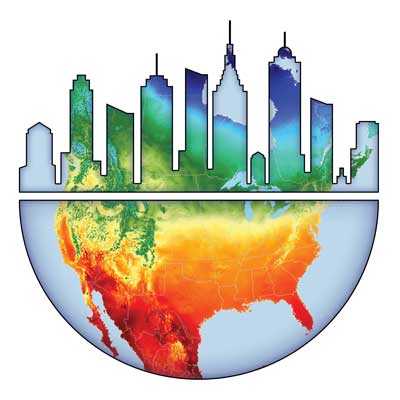About

Urban Landscapes. Urban integrated field laboratories focus on highly heterogeneous locations having uneven distribution of physical landforms and vegetation, environmental processes, the built environment and infrastructure, and population density.
Urban Integrated Field Laboratories (UIFLs) represent a division-wide effort across BER’s Earth and Environmental Systems Sciences Division (EESSD) to advance the science underpinning our understanding of the predictability of urban systems and how urban systems interact with energy, water, economics, and other sectors of the region.
UIFL research encompasses the interdependence of atmospheric, hydrological, ecological, infrastructure, and other components of the built and economic environments, and research encompasses field observations, data assimilation, modeling, simulation, and model-data fusion.
UIFLs explore, in particular, fundamental science characterized by high-gradient urban landscapes, such as systems found in coastal, mountainous, and other heterogeneous regions. A unique feature of the UIFLs is the focus on innovation involving hyper-resolution analysis, (i.e., novel approaches to rapidly advance basic science for the public and private sectors through stakeholder collaborations). This is facilitated by research teams that are comprised of many institutions, including DOE national laboratories, academic and nonprofit research institutions, other federal agencies, and private sector organizations.
